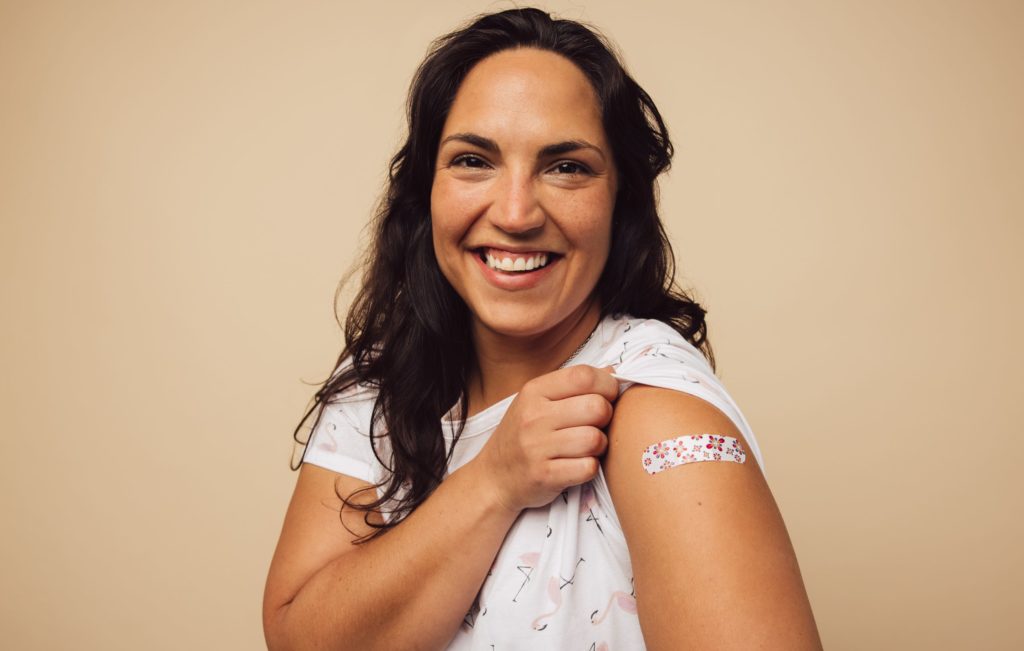
It’s that time of year again – students are back in school, pumpkin scented items have returned, and football fans are gearing up for a new season. As southeast Michigan residents anticipate the fall season, many forget about circulating flu viruses.
Flu (influenza) is a virus that affects the lungs, throat and nose, and if symptoms are severe enough, may lead to death. Flu viruses spread when those who are sick cough, sneeze, or talk and send droplets of the virus into the air and into the mouths or noses of people who are nearby. The best way to prevent flu is to get a flu shot each year.
It is best to be vaccinated before flu viruses begins spreading in your community this fall. Between September and October is an ideal timeframe to stop by your local pharmacy or schedule an appointment with your primary care provider.

The Centers for Disease Control and Prevention (CDC) recommends that eligible individuals get vaccinated by the end of October. However, if you are not able to get vaccinated until November or later, vaccination is still recommended because flu most commonly peaks in February and significant activity can continue through the month of May.
Special considerations should be taken by certain age groups:
- Adults, especially those 65 years and older, should not get vaccinated early (in July or August) because protection may decrease over time, but early vaccination can be considered for any person who is unable to return at a later time to be vaccinated.
- Some children need two doses. For those children it is recommended to get the first dose as soon as the vaccine is available because the second dose needs to be given at least four weeks after the first.
- Individuals in the third trimester of pregnancy should consider early vaccination because it can help protect their infants during the first months of life (when they are too young to be vaccinated).

Benefits of Flu Vaccination
- Flu vaccines work. Flu vaccination prevents millions of illnesses and flu-related doctor’s visits each year. For example, during the 2019-2020 flu season, vaccination prevented an estimated 7.5 million influenza illnesses, 3.7 million influenza-associated medical visits, 105,000 influenza-associated hospitalizations, and 6,300 influenza-associated deaths.
- Flu vaccination can keep you from getting severely sick. While the flu vaccine will not prevent the flu, it will reduce severity of symptoms if you do get it.
- Flu vaccination is an important preventive tool for people with certain chronic health conditions. Flu vaccination has been associated with lower rates of cardiac events among people with heart disease, reduced rates of worsening chronic lung disease, and reduced hospitalizations among people with diabetes and chronic lung disease.
- Flu vaccination helps protect pregnant women during and after pregnancy. Vaccination reduces the risk of flu-associated acute respiratory infection during pregnancy by about 50%.
- Getting vaccinated yourself may also protect people around you. Flu vaccination can help keep your loved ones, coworkers, and neighbors safe. This is especially helpful for those who are more vulnerable to serious flu illness, like babies and young children, older people, and people with certain chronic health conditions.

Where to Get a Flu Shot in September
- Henry Ford Health – Flu vaccines for the 2022-2023 season start September 15.
-
- Ask for a flu shot during an appointment with your primary care or specialty doctor.
- Schedule a flu shot with your Henry Ford primary care doctor through your MyChart account.
-
- Your local retail pharmacy such as CVS, Walgreens, Rite Aid, Kroger, Costco, Walmart, Sam’s Club, and Meijer.
A Note on COVID-19 Vaccination:
This year, you can get both the flu shot and a COVID-19 shot at the same time. If you have not received a COVID-19 vaccine, you should get it during the same appointment.